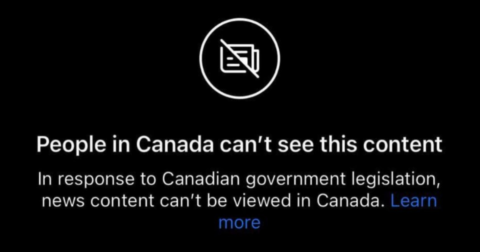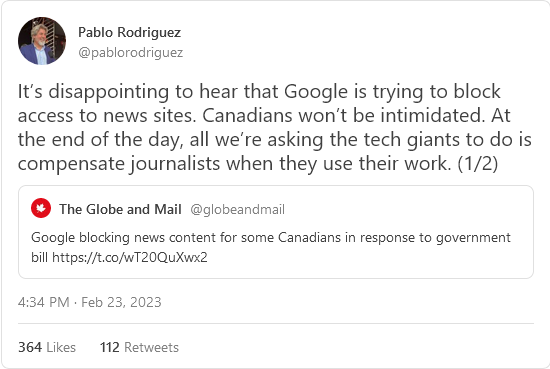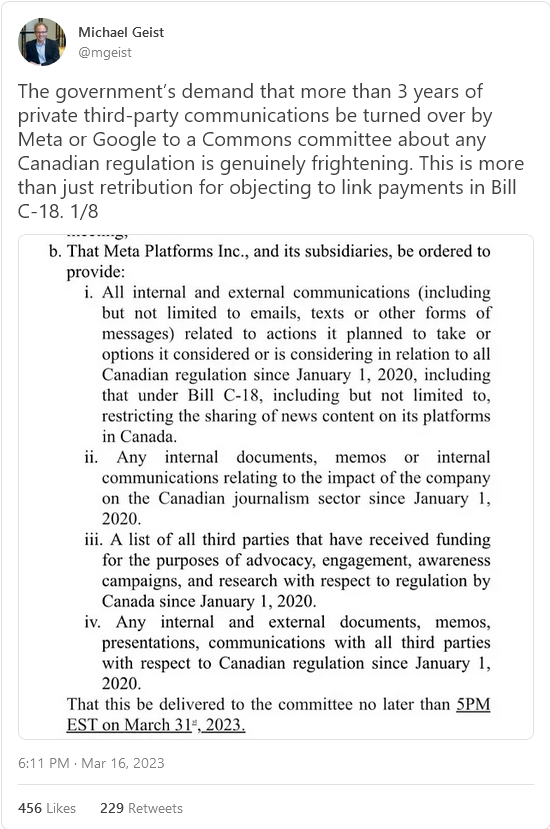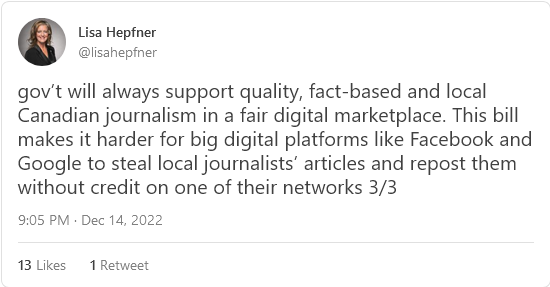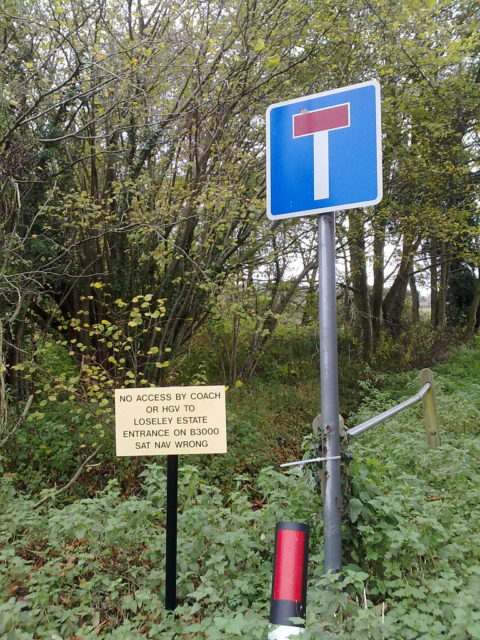For some reason — despite a clamour of warnings from sensible observers — the Canadian government still seems shocked and surprised that the much-reviled “tech giants” have chosen to obey the new Online News Act and are actively blocking links to Canadian media outlets just as the law requires:
For months, supporters of Bill C-18, the Online News Act, assured the government that Meta and Google were bluffing when they warned that a bill based on mandated payments for links was unworkable and they would comply with it by removing links to news from their platforms. However, what has been readily apparent for months became reality yesterday: Meta is now actively blocking news links and sharing on its Facebook and Instagram platforms. The announcement does not reference Threads, but it would not surprise if news links are ultimately blocked on that platform as well. The company says that the blocking will take several weeks to fully roll out to all users, suggesting that it has learned from the over-blocking mistakes made in Australia and is proceeding more cautiously in Canada. By the end of the month, the world’s largest social media platform will become a news desert in Canada, with links to all news – both Canadian and foreign – blocked on the platform.
It is worth revisiting that it was only a couple of months ago that some industry leaders, lobbyists, and academics were assuring the Senate that the Meta threat was just a bluff. Kevin Desjardins of the Canadian Association of Broadcasters, referenced the Australian experience, and told the Senate committee studying the bill that “when legislated to do so, they will come to the table”. Sylvain Poisson of Hebdos Quebec confidently said “they made those threats in Australia and elsewhere and every time they back down”. Chris Pedigo of the U.S.-based Digital Context Next assured the committee “it’s important to understand what happens when these bills become law. In Australia, they moved quickly to secure deals. They have done similar work in Europe, and I expect it would happen quickly in Canada as well.” And Carleton professor Dwayne Winseck said “I am not worried. The threats they are making, they are doing this all around the world.”
Despite the assurances, the company was true to its word and blocking news links is now here. If this is a negotiation tactic, it’s a pretty strange one given that reports indicate the company is not talking to the government about potential changes to a law that has already received royal assent. Indeed, while the new Heritage Minister Pascale St-Onge urged the company to participate in the regulatory process, there is nothing in the regulations that could alter the fundamental principle in the bill of mandated payments for links. At best, the government could toss aside its commitment to stay out of negotiations by using the regulations to dictate to the supposedly independent CRTC how much needs to be spent in order to avoid Bill C-18’s final offer arbitration provisions. Government negotiating total payment value and eviscerating the CRTC’s independence does not inspire confidence and Meta reasonably wants no part of it, since the time to fix Bill C-18 was before it received royal assent, not after.
Bolded section mine: I didn’t realize that it wasn’t just Canadian media links that were being blocked … it’s all news sites in the world being hidden from Canadian users. That’s an escalation from what I’d originally understood. I don’t blame the “tech giants” at all, but it will be tough on older Canadians who’ve been depending on social media to keep them up-to-date on domestic and foreign news.

